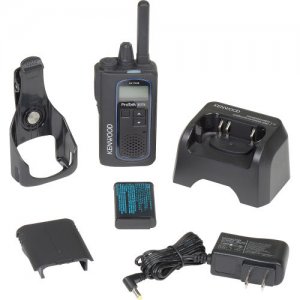
On average, most two-way radio batteries last 18 to 24 months – all dependent on the quality of the battery and how you use your radio. Rechargeable batteries, of course, can be used over and over again.
Here are some ways to help your two-way radio batteries last longer:
- Initialize Your Batteries: New two-way radio batteries come with nearly 50 percent of their capacity charge as a safety protocol and because the battery power decreases over time. Once you begin using the battery, it will fall below maximum load.
- Proper Storage: Keep new uninitialized batteries in a well-ventilated, cool dry place to preserve their capacity and several life cycles. Avoid storing them near flammable substances.
- Discharge Used Batteries before Storage: When storing batteries, discharge them to half of their capacity. Again, keep them in a cool, dry place away from combustible substances.
- Proper Maintenance: Ensure that your battery contact surfaces are always clean. Dirt is a primary source of charging issues. Routine cleaning optimizes battery performance. To clear any dirt and residue, use a soft cloth to clean the contacts. Pure alcohol is also recommended to remove grease and other contaminants.
- Discharge Used and Stored Batteries Before Recharging: When batteries are initialized, used, drained to 50 percent and stored, it’s best to conduct a deep discharge before recharging again. Don’t confuse this with the initializing process because the batteries have already experienced a load at the time of use.
- Use Battery Conditioners: Every NiCad cell battery suffers a condition known as “memory effect.” If this happens, two-way radio batteries will not charge to full capacity. Prevent this by using a conditioning battery charger. This charge can detect and attempt to correct the issue. If you cannot find a conditioning battery charger, consider emptying the battery completely before recharging. Keep in mind that regular top charges are among the leading causes of memory effect.
- Don’t Charge Batteries Before the Batteries Are 100% Discharged: Charge batteries only when they are completely discharged. We recommend purchasing a spare battery for longer duty cycle applications. In fact, having an extra battery in tandem with the main battery is a more cost-efficient solution than purchasing a new, primary battery every six months.
- Don’t Continually Charge Two-Way Radio Batteries: Office-based employees tend to leave their handheld radio in the charging port on their desk. This is why their batteries degrade faster compared to those used by field-based employees. Never leave a radio connected to the charger for prolonged periods of time. Avoid using the battery charger as a stand when it is connected to power. A battery that is continuously charging will lose capacity.
- Never Return a Fully Powered Battery to the Charger: Employees may be tempted to return fully loaded batteries to the charger for an extra boost. This is a costly mistake. Never try to increase battery life by extra charging. It will reduce the life cycle and capacity of the batteries.
- Replace Old Radio Batteries: Even the best cared for two-way radio batteries don’t last forever. We suggest replacing any batteries more than 18 months old. Be sure to consider reputable brands for battery replacements, such as Motorola. Don’t forget to recycle old batteries. According to the Environmental Protection Agency (EPA), rechargeable batteries are a waste hazard. Contact your local hazardous waste authority for proper disposal.
Always remember, transmit will be affected first because it uses more current. For the most part, you can receive on a low current battery without issue. If you have questions, General Communications is here to help with all your two-way radio needs. Contact us today.
